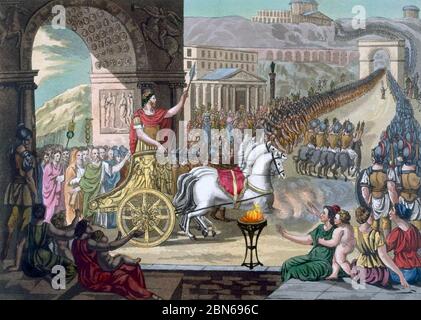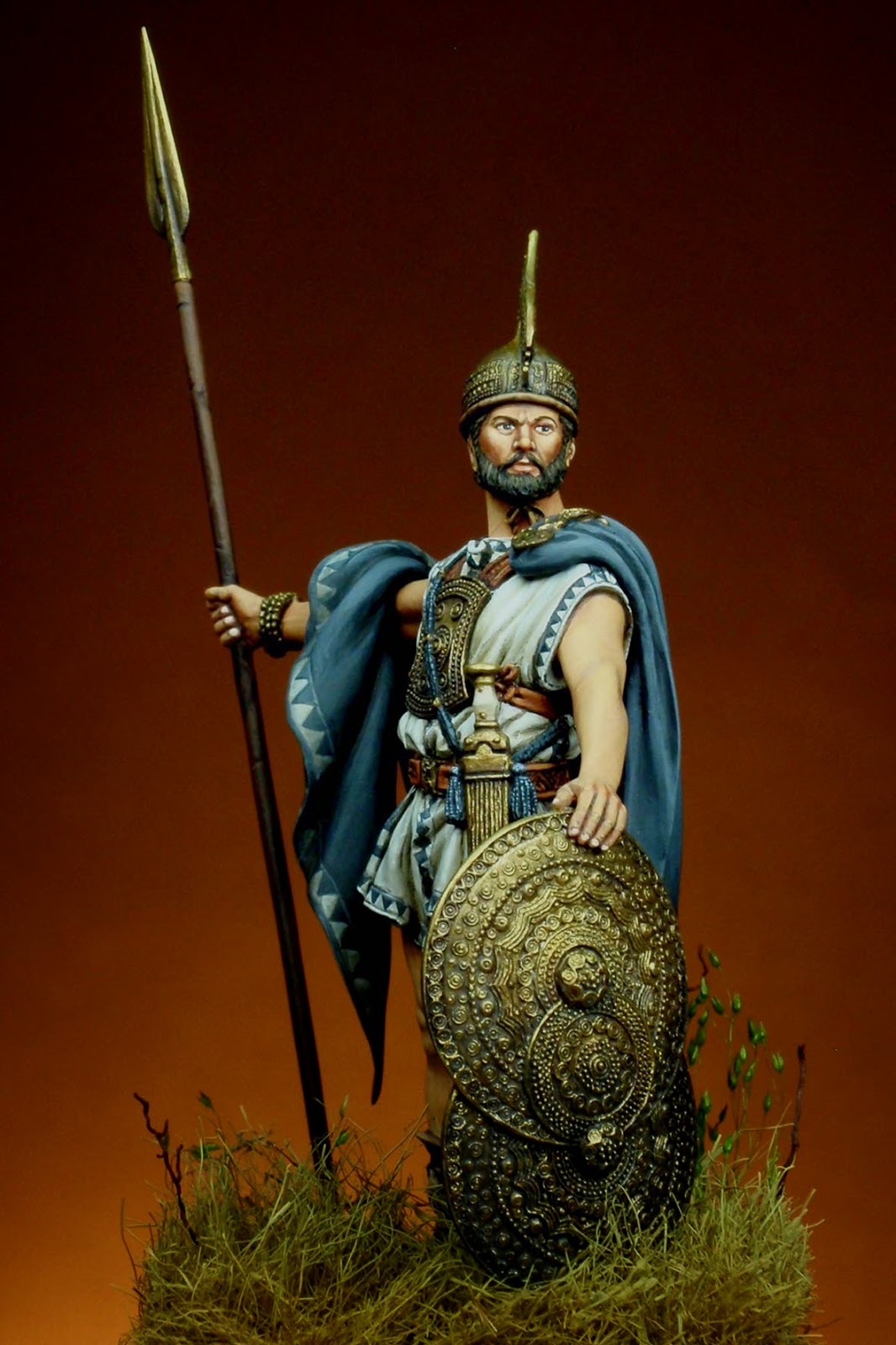

Sertorius' fame and glory grew, and with it his ego. Both he and Metellus were repulsed in open attacks, sieges failed, and harassed at every turn by Sertorius' Spaniards. The next two campaign seasons resulted in more of the same for Rome's supposed greatest commander, Pompey.

The year 76 BC was a disaster for the joint commanders and they were forced to withdraw. From the moment Pompey crossed the Pyrenees, he was harassed and outmaneuvered by Sertorius at every attempt. Perhaps it was Sertorius, and not Pompey who was really the pre-eminent commander of the day. While arriving with many expectations, Pompey would prove himself to be more effective that Metellus was. Pompey joined Metellus in Hispania in 76 BC. Ironically enough, it was the oration of the life long Republican defender Marcus Tullius Cicero, which pushed the proposal into law. In 66 BC, despite fierce Senatorial Optimate opposition, the Lex Manilia was passed granting Pompey unlimited power in the eastern territories. Pompey's command would go so well, in fact, that by the time Glabrio took his post against Mithridates, another tribune, C. Pompey was also granted unparalled authority in defeating the Cilician pirates who ravaged shipping throughout the Mediterranean. Gabinius passed a law transferring command of the Mithridatic campaign to the current Consul Glabrio. By 67 BC, the Senate, and the people had had enough, and new initiatives were launched. Licinius Lucullus against him garnered little success. Piracy and Rome's old enemy, Mithridates, continued to stir up trouble, and the command of L. Both during and after Pompey's consulship, problems in the east were persistent.

Perhaps to appease a man who was in a position to possibly march on Rome, or to truly honor a capable general with the best chance of Roman victory, the Senate reluctantly tolerated Pompey. Despite fears of a new Sullan military dictatorship, as the Senatorial class deeply distrusted Pompey, he received numerous special powers in his career. Regardless, Pompey enjoyed considerable favoritism among the masses, as well as the army. In their joint consulship, the two worked together repealing the bulk of Sulla's constitutional reforms, but otherwise had little use for one another. In order to avoid more potential civil disorder, as both men maintained considerable armies, both were elected as Consul for the year 70 BC. Licinius Crassus, who conducted the bulk of the operation against Spartacus, built a dangerous rivalry in the process. Upon returning from Spain, Pompey helped mop up the war with the Gladiator general Spartacus, claiming much of the credit in the process. While the war was not exactly a clear cut victory for Pompey, the opposing army was only defeated after Sertorius was murdered, Pompey returned to Rome in triumph. After Sulla, and despite having no experience as a Roman magistrate, he coerced a command in Spain against the rebel Sertorius, simply through the fear of his legions. Involved only a short time in Roman civil affairs, Pompey quickly learned the political power of an army behind him. For this he earned, or was mocked with, the title Magnus (the Great). Pompey rose to prominence serving Sulla in the first major Roman civil war, defeating the forces of Marius in Africa. By the age of 17, Pompey was an active participant in his father's campaigns and was busily building a foundation for his own military career. His father, Pompey Strabo, was elected consul in 89 BC, and was an accomplished general who served Rome in the Marsic Social War, as well as the civil wars of Marius and Sulla. Though not a native Roman family, the Pompeys were moderately successful at making inroads into Senate seats. Gnaeus Pompeius Magnus (Pompey the Great) was born in 106 BC in the northern Italian town of Picenum.


 0 kommentar(er)
0 kommentar(er)
